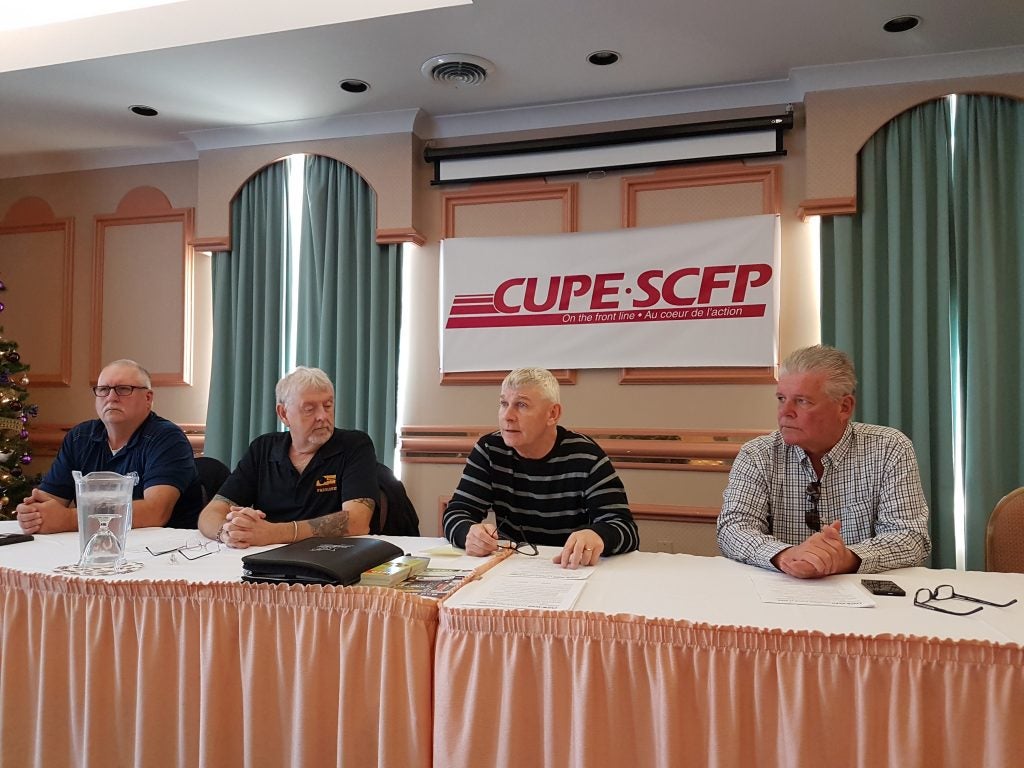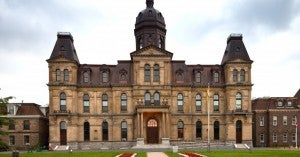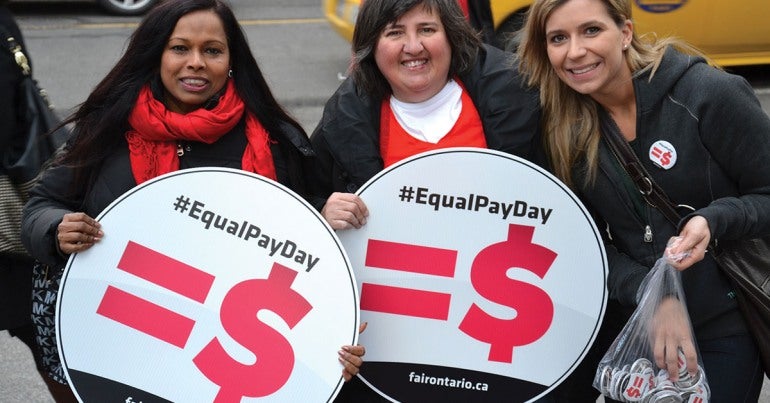FREDERICTON: Both Vitalité and Horizon Health Networks are about to sign a 10-year deal to privatize management and operation of hospital food service, environmental services and patient transportation.
“We were informed that 280 full-time  equivalent positions will be affected in the decision to sell off publicly run services to Sodexo, a French multinational corporation,” said Norma Robinson, President of New Brunswick Council of Hospitals Unions, CUPE Local 1252.
equivalent positions will be affected in the decision to sell off publicly run services to Sodexo, a French multinational corporation,” said Norma Robinson, President of New Brunswick Council of Hospitals Unions, CUPE Local 1252.
CUPE 1252 is very concerned by Sodexo’s grim track record: in other provinces and in the USA, they have been highly criticized, sued for overcharging governments and even kicked out of universities, jails, schools, and other institutions where they operated.
“It’s outrageous because we are already running a barebones operation. To save money and turn a profit, this company will inevitably cut corners. This will mean more hospital-borne infections and “superbugs”. This government is putting sick people, seniors and our most vulnerable citizens’ health at risk,” said Robinson.
Less healthcare cleaning and infection control staff frequently results in more cases of Staphylococcus aureus (MRSA), vancomycin-resistant Enterococcus (VRE), C. difficile and other infections caused by bacteria and viruses encountered in healthcare facilities.
In past meetings with the previous Health Minister, CUPE 1252 had been reassured that no privatization of these services would happen – because there were no solid guarantees to find savings without loss in quality and services.
“The health of patients and workers should matter: by keeping these services in-house, we can avoid costly and dangerous problems,” said Robinson.
“Despite past cuts, the Union did its best to make sure hospitals were meeting their cleanliness targets. Front-line workers and their supervisors were meeting on a regular basis to raise cleanliness standards in facilities,” said Robinson.
CUPE 1252 is also concerned that more frozen food systems will be implemented: “Is this the food New Brunswickers deserve when they are sick and dying in a hospital bed?” asked Robinson.



 agency stores is an attack on rural New Brunswick. The Petit-Rocher store alone has made over 1 million dollars in profit last year, yet NB Liquor’s CEO wants to go forward with closures. It’s deplorable,” said Jamie Agnew, President of CUPE Local 963.
agency stores is an attack on rural New Brunswick. The Petit-Rocher store alone has made over 1 million dollars in profit last year, yet NB Liquor’s CEO wants to go forward with closures. It’s deplorable,” said Jamie Agnew, President of CUPE Local 963.



 Stop the wage suppression omnibus bill in NB
Stop the wage suppression omnibus bill in NB March 22, 2016 – Fredericton – Out of the blue and without any public or worker input, the New Brunswick government is currently going to fast-track wage suppression legislation. The Federation of Labour recently learned that this bill could be passed during the formal adoption of the provincial budget.
March 22, 2016 – Fredericton – Out of the blue and without any public or worker input, the New Brunswick government is currently going to fast-track wage suppression legislation. The Federation of Labour recently learned that this bill could be passed during the formal adoption of the provincial budget.
